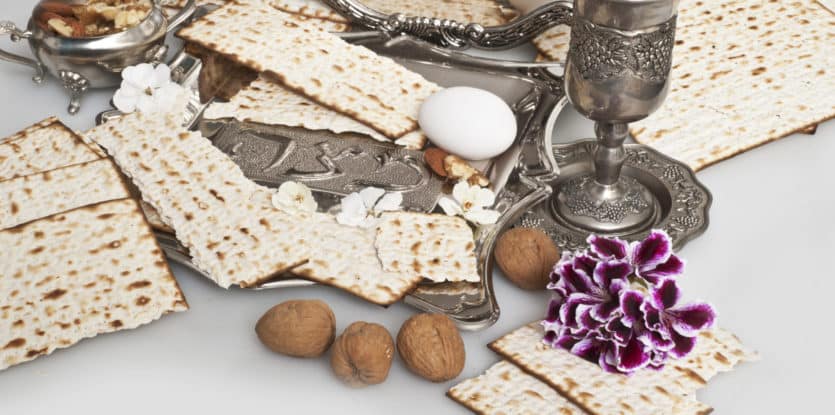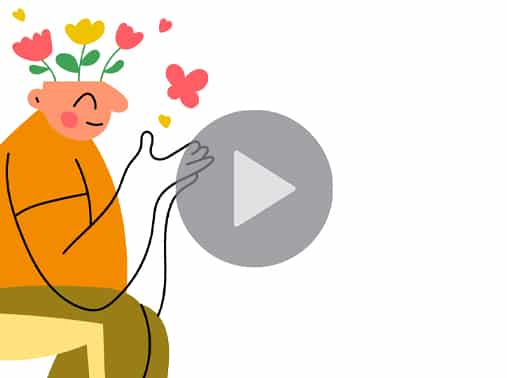Dear Rabbi Jacobson,
I would like you to know that I attended a Passover Seder for the first time in my life last year as a result of your workshop at the National Arts Club, The Soul of the Seder: 15 Steps to Personal Freedom. A friend insisted that I come to the workshop, and frankly I went along begrudgingly, completely skeptical of any religious presentation.
But to your credit I had, against my inclination, an illuminating and inspiring experience, which motivated me to attend a Seder. I had never imagined that the Seder had such a rich and profound spiritual structure.
So now, as we approach Passover, I would like to challenge you to help me and others make the most of the Seder experience. What mindset should one have at the Seder? How do we bridge the traditional rituals – eating Matza, maror and drinking the four cups of wine – with their spiritual counterparts?
Thank you for opening up the inner world of Jewish tradition to me and so many others.
Blessings for a healthy holiday,
[signed]
—————
No body can function without a soul. The body of the Passover Seder is well known and documented. We assemble a Seder plate, go through fifteen steps, eat matzo and maror (bitter herbs), drink four cups of wine, recite the Haggada, ask and answer questions. But what is the soul of all these activities?
The objective of the entire Passover Seder and holiday is to achieve one thing: Transcendence. “Mitzrayim” (Hebrew for Egypt) means boundaries, constraints and limitations. Exodus from mitzrayim is freedom from bondage to our fears, inhibitions and addictions.
How can we use the Seder rituals as tools to achieve personal transcendence; to experience emotional and spiritual freedom?
To do so requires preparation and thought – setting the tone for the entire Seder experience.
The entire Haggada is structured in question and answer form: The children begin by asking the four questions, and the adults respond by telling them the story in all its detail. Indeed, the word “Haggada” itself means “to relate,” to tell the story.
Questions and answers are one of the most powerful tools we have to explore and probe, to unearth and discover the true nature of things. Often the right question is even more important than the actual answer. “The wise question” – we are told – “is half the answer.”
So asking the right questions is crucial to accessing the powerful Seder experience and truly have a unique experience on this night, which is “different than all other nights of the year.”
Like buckets that allow us to draw out precious fuel deeply embedded in the ground, good questions help us burrow into our psyches and our traditions and draw out life transforming experiences.
In this spirit, here is a suggestion of some questions to ask yourself before and during the Seder to help you tap into the rich resources of the Seder night.
The four questions asked at the Seder capture the primary ingredients that distinguish Passover night from all other nights of the year.
These four questions have both a body and a soul.
The body of the questions:
“Why is this night different from all other nights?”
1) “On all nights we need not dip even once, on this night we do so twice.”
2) “On all nights we eat chametz (leaven) or matzah, on this night [we eat] only matzah.”
3) “On all nights we eat any kind of vegetables, on this night maror (bitter herbs).”
4) “On all nights we eat either sitting upright or reclining, on this night we all recline.”
(This order of the questions is based on the Arizal’s order and the one that I grew up with. There are other equally legitimate orders).
These four elements – Dipping, Matzah, Maror, Reclining – represent four fundamental soul searching questions that each us must ask of ourselves.
Dipping is the sublimation of our material lives (symbolized by the vegetable, the “fruit of the earth”) to spiritual ends. Like immersion in a mikveh (a ritual bath), in which we submerge our bodies in a higher state of being.
Matzo is the “food” of humility.
Maror is empathy.
Reclining is symbolic of comfort and freedom. Instead of the tightness of sitting upright, we let go and relax.
Thus, the soul of the four questions compels us to ask the following questions:
1) Do I see materialism as an end in itself, or “dipped” – as a means to spiritual goals?
2) Do I have humility?
3) Do I have empathy and compassion?
4) Am I comfortable with myself?
Obviously, each of these questions is but a mere headline to a series of more comprehensive questions that evaluate our psyches, and help us recognize what keeps us enslaved and what we need to experience transcendence.
1) Dipping – Evaluation of the balance between the material and spiritual dimensions of your life
- a. Do I value the importance of “dipping”?
- b. What are my spiritual goals?
- c. How do I use my work or my other physical activities as a stepping-stone to higher objectives?
- d. How do I maintain this “dipping” all year round? For example: Giving charity daily.
- e. Why is it difficult for me to sublimate my body needs and instant gratification?
2) Matzah – Evaluation of your ego vs. your humility and modesty
- a. Do I understand the importance of humility?
- b. Do I appreciate that it is the single most important element in freeing myself from any fear and emotional resistance?
- c. Are there any areas in my life where I feel more humble? Why? And what areas need special work to tame my ego?
- d. What is the root of my arrogance? Is it due to my strengths or my weaknesses?
- e. Is my arrogance just a smokescreen for my insecurity?
3) Maror – Evaluation of your level of empathy and compassion
- a. How emphatic am I to others? To myself?
- b. Does my compassion come with “strings attached,” i.e. my own personal gain?
- c. When was the last time that I shed tears for another’s predicament?
- d. Do I realize that empathy equals sensitivity – the very essence of being alive: feeling and experiencing the heartbeat of all life? That when I have no compassion to strangers, it will also impact the kindness I show to myself and to close ones?
4) Reclining – Evaluation of your self esteem
- a. Why am I not always comfortable in my own skin?
- b. Are there times or situations when I reach a deep calm? When I am sure of myself?
- c. If yes, do I understand what brings that level of tranquility? And can I access it at will?
- d. Are my friends and associates adding to my tension or to my peace of mind? Do I put myself in situations that feed my insecurity?
- e. Can I for this one night lean back and recline, knowing that I put my trust in G-d?
The questions go on. These are but a sampling of questions – a catalyst – that each of us can use to enhance our Seder experience. Allow yourself to ask ourselves as few or as many questions that help you personalize – really personalize – the Passover Seder.
Remember, even if you cannot answer all these questions or answer them satisfactorily, the mere fact that you allow yourself to enter the arena of your soul and your emotions is in itself the first step of freedom.
Also remember that every experience is only as powerful as your preparation for it. For this reason we begin the formal preparations to Passover (and all holidays) thirty day before the holiday. We begin to study its laws, and above all – to prepare ourselves spiritually to the special experience ahead of us.
Therefore, it may be wise to prepare for the Seder with the following exercise:
Before Passover begins – anytime this Friday before sundown – take a piece of paper and list:
1) Three inhibitions (chamatz; mitzrayim) you would like to rid yourself of. Make sure that these are three internal impediments or fears, not people or situations outside of yourself (like an intolerable parent or an obnoxious boss).
2) Four aspirations and dreams you would like to achieve. Four areas (like the four cups of wine) in which you wish to celebrate freedom. Here too focus not on the means (like making a lot of money) but on the ends.
3) Three areas in which you are especially egotistic, and three (like the three matzot) in which you have a special dose of humility.
As you go through the Seder, drinking the cups of wine and eating the matzo and maror, think about these lists.
May we all be blessed with a meaningful and transcendent Passover – one which allows us to “pass over” our fears and limits (perceived or real) and experience true, sweet and lasting freedom.
We must always know that the ultimate secret to real emancipation lies in our sublimation, humility, empathy and self-respect – all made possible when we recognize that we are not self-made creatures, but part of a higher reality, as eloquently stated in the first and foundation of the Ten Commandments: I am your G-d Who freed you from Mitzrayim.
A very happy Passover to you and yours,
Simon Jacobson and all of us at The Meaningful Life Center







